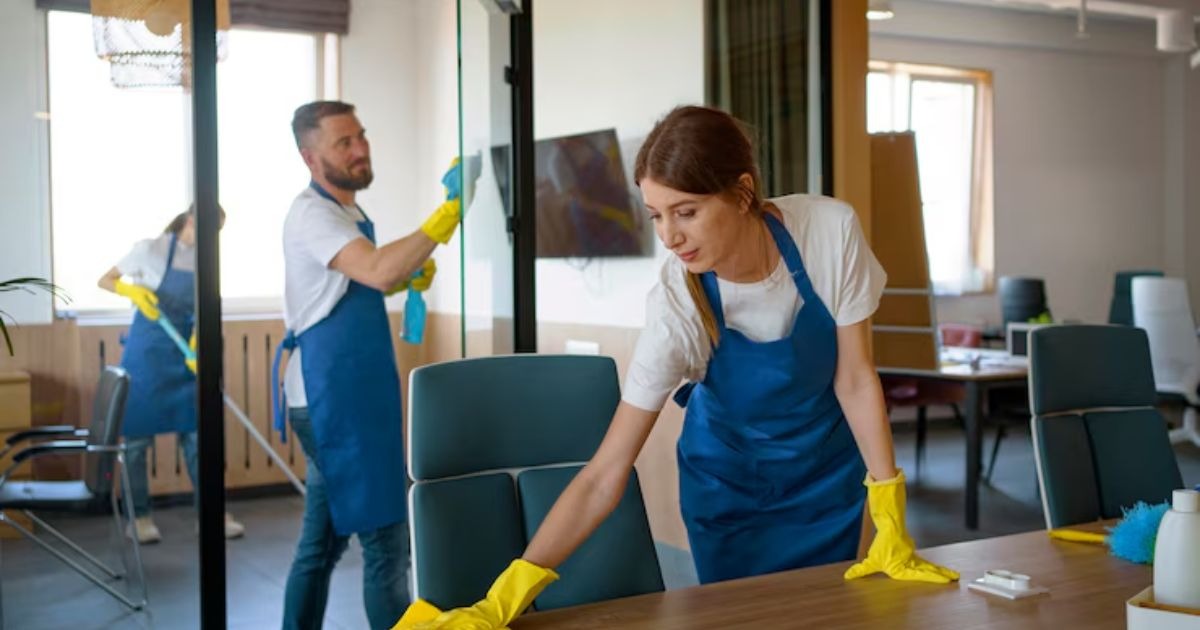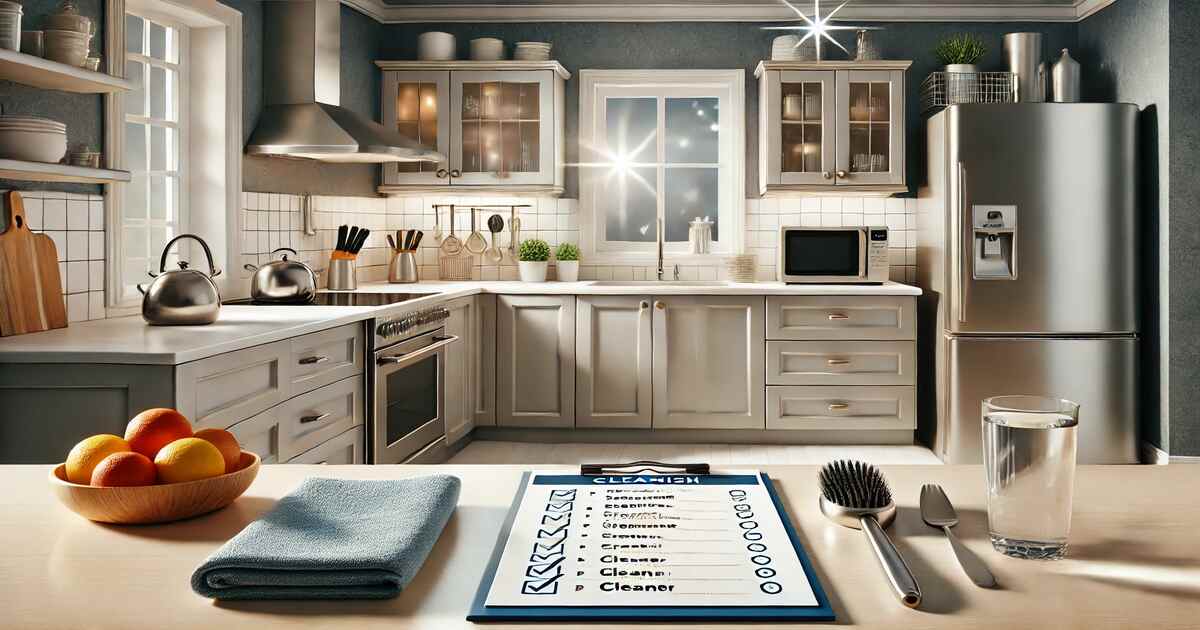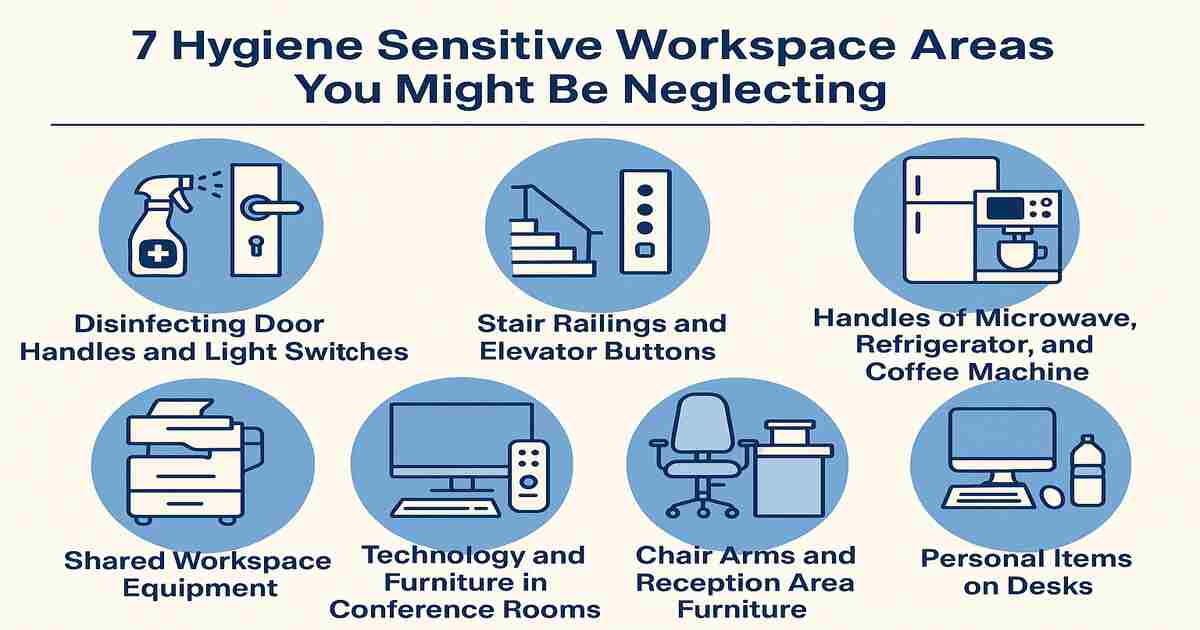
Commercial household cleaning products may damage human health because they include hazardous chemicals that generate harmful gases and other indoor pollutants. To improve the indoor air quality in your house, switch out your harsh chemical cleansers for homemade, all natural cleaning solutions. Thus, we advise you to experiment with these DIY remedies when maintaining a germ-free household is crucial.
These days, many professional cleaning products are available, each containing hazardous chemicals and presented in ornate plastic packaging. There are incessant marketing campaigns aimed at convincing you to purchase the newest, most potent, and best-smelling disinfectant for your regular cleaning requirements.
bond cleaners Brisbane may help you with everything you need for a spotlessly clean and hygienic home by keeping things straightforward and switching to homemade cleansers.
Not only will you use less plastic when you prepare your chemical-free cleaning products using my natural cleaning recipes, but the production, usage, and disposal of these items will also significantly reduce pollution in the home and environment.
Do DIY cleaners work well?
Homemade cleaning solutions can frequently perform tasks equally as well as those purchased from stores. However, you may need to scrape a little bit more or apply a second coat, depending on how unclean the surface is that has to be cleaned. Additionally, not all DIY cleaners—even those marketed as Eco-Friendly Cleaning are appropriate for all surfaces or purposes, much like commercial cleaners.
Whether a cleaner is handmade or not, it’s always best to test it on a hidden area to be sure it won’t damage your surface, especially if you’re using it for the first time. Additionally, be sure to correctly identify any bottle or container containing homemade cleaning, noting the components it contains, for safety reasons.
Natural Cleaning Recipes In Brisbane
The WC
Mix half a teaspoon of essential oil with one cup of vinegar and mist the toilet, seat cover, lid, and base. Next, fill the bowl with a half-cup of baking soda, then use a toilet brush to clean it. To wipe the other WC surfaces, use a sponge.
A Reliable Cleaner:
One part vinegar to four parts water can be combined to make an all-purpose cleanser for daily use. This cleaning solution is effective on a range of surfaces, such as furniture, floors, watermarks, and spots on glass. Since vinegar and other acidic solutions can scrape natural stone surfaces like marble and cause damage, it is never a good idea to clean these surfaces with them.
Baking Soda:
Baking soda is excellent at cleaning up animal messes, oil, and proteins. It’s more affordable than store-scrubbing powders and is an excellent deodorizer. Even litter boxes and trash cans can benefit from the application of baking soda.
Glass-Covered Windows and Mirrors:
To solve a spray bottle, mix one part water and one part apple cider vinegar. Utilise this mixture on glass windows and mirrors. With a gentle cloth, wipe.
Wooden Chairs:
Another thing you can combine the 1/4 cup vinegar, 3/4 cup olive oil, and insufficient drops of vital oil in a spray bottle. Give a good shake. Now mist wooden furniture with this solution, then use a soft cloth to clean the surface.
Brass and Chrome Finishes:
These mixtures can also be used to clean and polish taps, handles, knobs, and other brass or chrome bathroom fittings. To clean any metallic surfaces, drench a cloth in salt after soaking it in vinegar or lemon juice. Rinse with normal water and wipe with a dry cloth.
Disinfectant:
Utensils cutting boards, and other kitchenware that have a propensity to retain food particles and foster bacterial development can be cleaned using salt and lemon slices as a disinfectant. It is best to sanitise these tools before washing them.
Microwave Cleaner:
Place a bowl of vinegar and one lemon juice in the microwave; cook for two to three minutes. Close the door for a while to allow the trapped steam to dislodge the buildup within the microwave. Apply a dry cloth to wipe.
Rust and The Mildew
There are such areas in the home like bathrooms and kitchens and much more where fungus and mildew may grow on the walls or tiles. By applying white vinegar to the affected area you can allow it to sit for such time. After that, you can use warm water and make it dry.
Important Safety Advice for Cleaning
- It is not controlled or evaluated if cleaning products are safe, despite the consequences of indoor air pollution exposure. Only cleansers containing registered pesticides are subject to EPA regulation.
- That does not imply that anything that is considered “natural” is innocuous. Use caution when using any household cleaner, store-bought or homemade.
Wrap Up
Prepare these natural do-it-yourself floor cleansers to achieve the desired results. You can employ expert bond cleaners who have the Best Cleaning Techniques for cleaning the home. If you don’t have the necessary time or supplies, professional tenancy cleaning services can also help maintain hygiene and shine. Ensuring hygiene in the house is a benefit of employing a bond cleaner. You must adhere to the previously listed procedures if you want to keep the floor spotless and well-maintained for an extended period. In addition, since chemical items are bad for the environment and your health, you should never use them.



